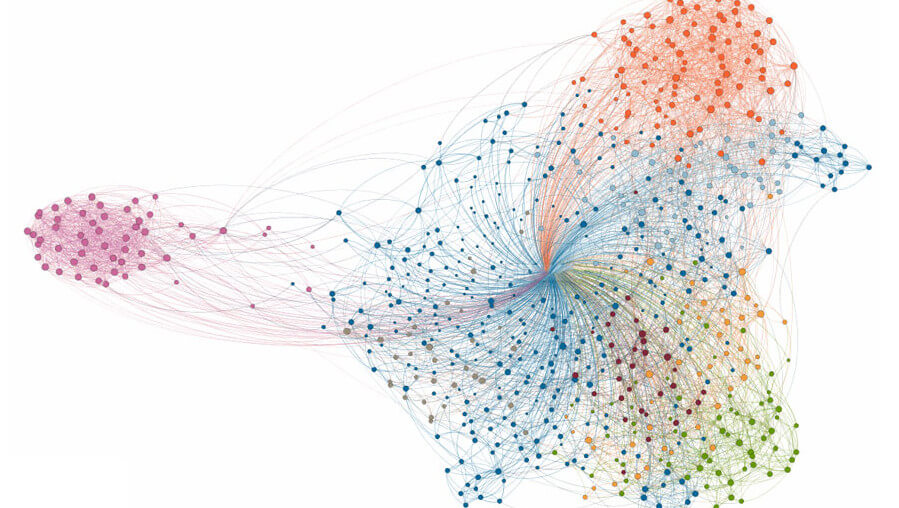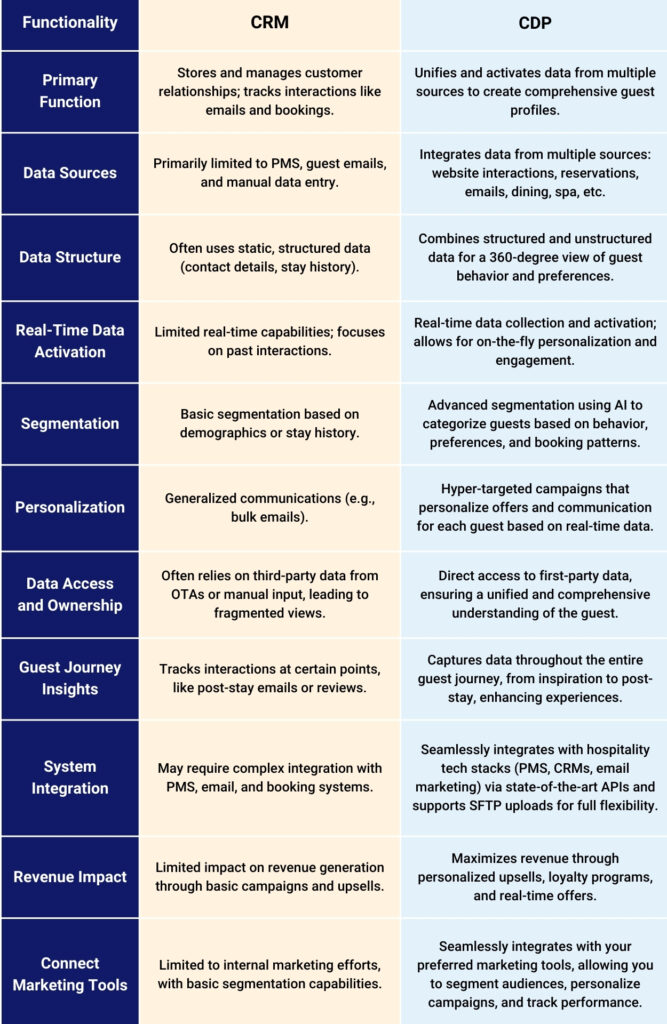
In the hospitality industry, data is king. From guest preferences to booking patterns, understanding your guests is essential to providing personalized experiences that build loyalty and increase revenue.
NB: This is an article from TrustYou
Subscribe to our weekly newsletter and stay up to date
Traditionally, many hotels have relied on Customer Relationship Management (CRM) systems to store guest data and manage relationships. However, as the volume and variety of data grows, a more advanced solution is needed: the Customer Data Platform (CDP).
We break down the key differences between CRM and CDP, and why we think that a CDP is better equipped to meet the complex data needs of modern hospitality operations.
1. Understanding CRM vs. CDP: A Comparative Overview
Below is a table that outlines the differences between CRM and CDP, highlighting their respective strengths and limitations, particularly in the context of hospitality operations:

2. Why CDP is the Future for Hospitality Businesses
360-Degree Guest Profiles
A CRM’s guest profile is often incomplete, typically capturing only basic contact information and a few touchpoints like past stays or emails. A CDP, however, unifies data from every touchpoint—website, reservations, restaurant visits, and even guest reviews—giving hoteliers a complete and actionable guest profile. This holistic view enables hotels to tailor services, offers, and communications that align perfectly with individual guest preferences.
Real-Time Insights and Engagement
Unlike CRMs that mainly rely on static or outdated data, CDPs provide real-time insights, allowing hoteliers to engage guests dynamically. Whether it’s offering personalized room upgrades upon check-in or suggesting dining options based on past behavior, a CDP empowers hospitality businesses to deliver personalized guest experiences in the moment.
Maximized Direct Bookings
With a CRM, guest data is often fragmented across third-party booking platforms (OTAs) and internal systems, making it difficult to nurture direct bookings. CDPs eliminate this challenge by unifying guest data and leveraging it to create direct marketing campaigns that reduce reliance on OTAs. This boosts both direct bookings and overall guest loyalty.
Advanced Segmentation for Personalized Offers
CRMs may allow for basic segmentation – like grouping guests based on location or past stays – but a CDP takes segmentation to the next level. With advanced AI-driven algorithms, CDPs analyze guest behaviors, preferences, and booking history, allowing hoteliers to create highly targeted marketing campaigns that resonate with individual guests. This not only enhances the guest experience but also drives greater revenue through personalized upsells.




